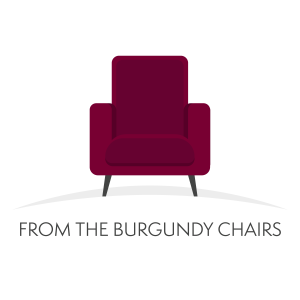
Canada is experiencing an HIV crisis and we’re moving in the wrong direction. By the end of 2020, there were 62,790 Canadians living with HIV. The following year, there were 1,472 additional diagnoses in Canada — a 11.3% increase from the previous year.
PrEP (pre-exposure prophylaxis) is a once-a-day pill that reduces the risk of transmission by 99% if taken consistently. This breakthrough medication has offered protection for those at risk of contracting HIV. While gay, bisexual and men who have sex with men (gbMSM) still make up over 40% over new HIV cases, there has been a notable decline in these numbers, largely attributed to the increased uptake of PrEP within this community.
Worryingly, however, is that in groups where PrEP uptake is virtually non-existent, transmission rates are on the rise. Indigenous Peoples, immigrants, and members of African, Caribbean and Black communities are all seeing increasing impacts of HIV. Women are also disproportionately affected, especially among Indigenous populations, where one third of new HIV infections were among women in 2020. Yet, less than 10% of the population that would benefit is using PrEP.
During a 2022 Montreal conference, the Government of Canada committed to 2030 global targets of zero new HIV infections, zero AIDS deaths, and zero stigma and discrimination. With only six years to go, Canada is further away from this goal than when we committed. So how do we increase awareness of this issue? How can we increase uptake of PrEP and other person-centric options for at-risk groups? How can we increase the urgency in the fight against HIV?
As part of Pride Month conversations, and in collaboration with Gilead Life Sciences Canada, Danielle Flieler sat down with Patrick O’Byrne, a Nurse Practitioner and Full Professor of Nursing at the University of Ottawa; Mia Biondi, Assistant Professor and the Nurse Practitioner program coordinator at York University School of Nursing; and Ken Monteith, Executive Director of COCQ-SIDA.
--
Patrick O’Byrne NP PhD is a Nurse Practitioner and Full Professor of Nursing at the University of Ottawa. Dr. O’Byrne’s work focuses on the prevention, diagnosis, and treatment of sexually transmitted and bloodborne infections. Dr. O’Byrne set up the first nurse-led HIV PEP and PrEP clinics in Canada, and Canada’s first mailout HIV self-testing program.
Mia Biondi is trained as a Primary Health Care Nurse Practitioner and is PhD prepared in Microbiology. Mia is an Assistant Professor and the NP program coordinator at York University School of Nursing. Clinically and her research is focused on refugee health, street outreach, HIV prevention and viral hepatitis.
Ken Monteith is the Executive Director of COCQ-SIDA (la Coalition des organismes communautaires québécois de lutte contre le sida). Trained as a lawyer, he worked in the community youth sector and in the HIV/AIDS sector. He participates actively in research, especially projects concerning the quality of life of people living with HIV and prevention for men who have sex with men. He holds degrees in Industrial Relations, Common and Civil Law from McGill University and was a member of the Québec Bar from 1991 to 2001, when he resigned to devote himself more fully to his community work on HIV/AIDS. Ken Monteith was diagnosed with advanced HIV infection in 1997.
More Episodes
 2023-10-16
2023-10-16
 103
103
 2023-08-29
2023-08-29
 95
95
 2023-08-23
2023-08-23
 92
92
 2023-05-25
2023-05-25
 133
133
 2021-06-15
2021-06-15
 128
128
Create your
podcast in
minutes
- Full-featured podcast site
- Unlimited storage and bandwidth
- Comprehensive podcast stats
- Distribute to Apple Podcasts, Spotify, and more
- Make money with your podcast
It is Free
- Privacy Policy
- Cookie Policy
- Terms of Use
- Consent Preferences
- Copyright © 2015-2024 Podbean.com





